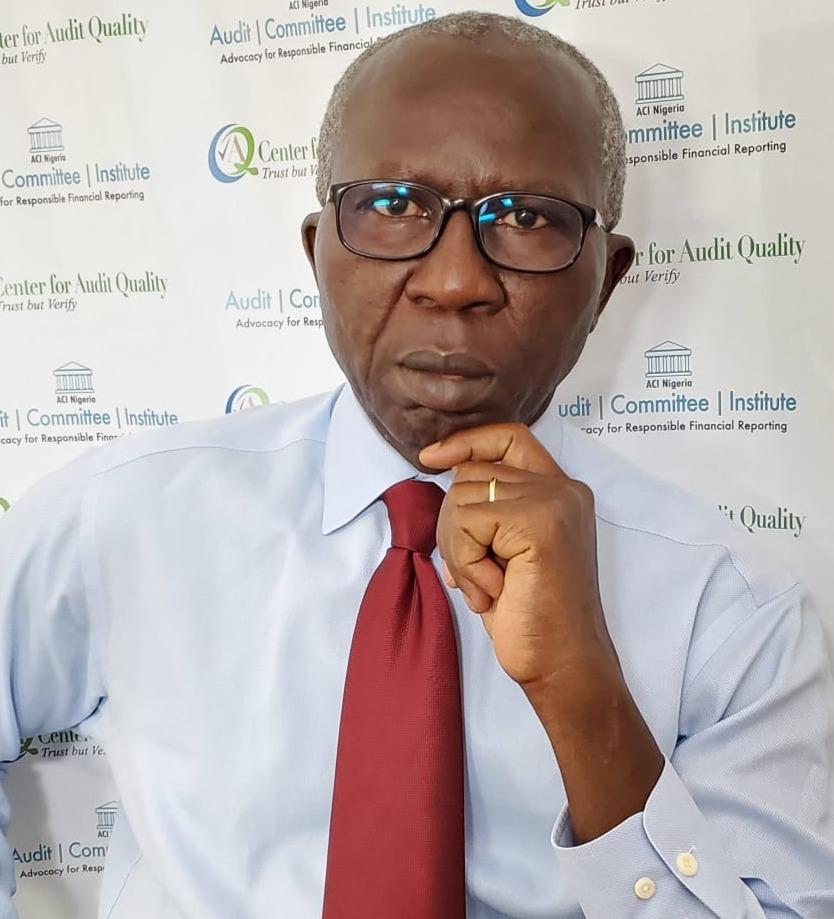Chairman of Audit Committee Institute (ACI), Mr. Chris Ekeigwe, has advised auditors and accountants to tread with caution in putting trust inArtificial Intelligence (AI) as a tool for business and audit. In his “A Letter to my Profession” (the fourth in the series of allocutions to the accounting profession) entitled “Audit Perspective on Artificial Intelligence – from Trust but Verify to Verify and Verify”,Ekeigwe warned that absolute trust in AI by auditors and accountants in the audit processand the belief in its ability to churn out flawless financial reports could spell doom for the corporate world just as the belief in the 1980s and 1990s that reports generated by personal computers were perfect, did.
Ekeigwe recalled that in the early days of personal computer, many professionals were made to believe that computers do not make mistakes, pointing out that that incorrect belief led to overconfidence and unquestioning reliance on computer reports by auditors, without diligent verifications, leading to the failure of auditors to timeously detect errors and fraud, and in turn resultedin the collapse of some companies in the 1980-2000s such as Barings Bank, Bank of Credit and Commerce International (BCCI), Wells Fargo, Enron, WorldCom, etc.He warned that a throwback to that era will be even more disastrous, given the immense power of AI today.He therefore asked accountants and auditors to be wary of the ongoing “persuading” calls by the tech industry assuring of the infallibility of AI, and the need to trust it. Riffing on the sentiment of Pirelli Tire advertisement that says “power is nothing without control,” he called on the profession to insist that appropriate auditable controls are designed into AI technology.
Even with what AI can help them to achieve, he advised that auditors should be unapologetically, courageously paranoid and inquiring, in all circumstances, even when that makes them unpopular. He maintained that the desires of the accountants and auditors for the truth should prevail if they do not put craven trust in the biased messaging about trust in AI.
Ekeigwe who lauded the enterprise of AI developers, describing them as great inventors and the best and brightest in class who are creating value for society, however,said that implicit in AI is fallibility inherited from its human creators. According to him,“we have never made anything perfect in all human history, and it is unthinkable that AI will become perfect before its creators”. He, therefore, maintained that the messaging of absolute trust in AI is unwarranted and deceitful, and should not be bought wholesale by auditors whose control-thinking is a critical success factor for the corporate world.He insist that AI deserves onlymeasured trust.
“It is noteworthy that our generation fetishized technology to the detriment of control thinking, conceding, or attributing, unwarranted power to it”, Ekeigwe said, adding that “I see that happening again today with the cognitive impact of tech industry’s exuberating messaging that we should trust AI, even while we see increasing signs that AI is not sufficiently reliable to warrant our implicit trust”. In the face of the potential dangers of AI, he said that the concept of verify and verify is not a mere emphasis, but an expression of significance. He posits that “truly, verify and verify, in AI environment, influences the future performance of controls and results of audit, and, therefore, the future going-concern posture of an entity. He said that audit should shift from “trust but verify” to sedulous “verify and verify.”
Ekeigwe said that one of the problems that audit has for dealing with AI trust is skills decay, namely, the obsolescence of skills due to rapid changes in AI technologies. “By now we should have AI audit experts the way we quickly developed for earlier technologies, but those who have been working hard to develop the skills for auditing AI quickly get blindsided by AI technology turnover”, he said, pointing out that achieving enduring AI audit capability maturity will continue to be a challenge for the accounting/auditing profession.
To checkmate the many surprises that AI will present in the future, he advised that the accounting/auditing profession should commit to the doctrine of “verify and verify” with grit and accordingly invest in, and focus on, learning how to control AI through empowering “tecknowledge” (techie knowledge with dexterity), system thinking, control thinking, control design, human behaviour, etc., so we can safely deploy and exploit the power of AI.
Full letter to my profession can be read here: https://lnkd.in/enUvecxB.


